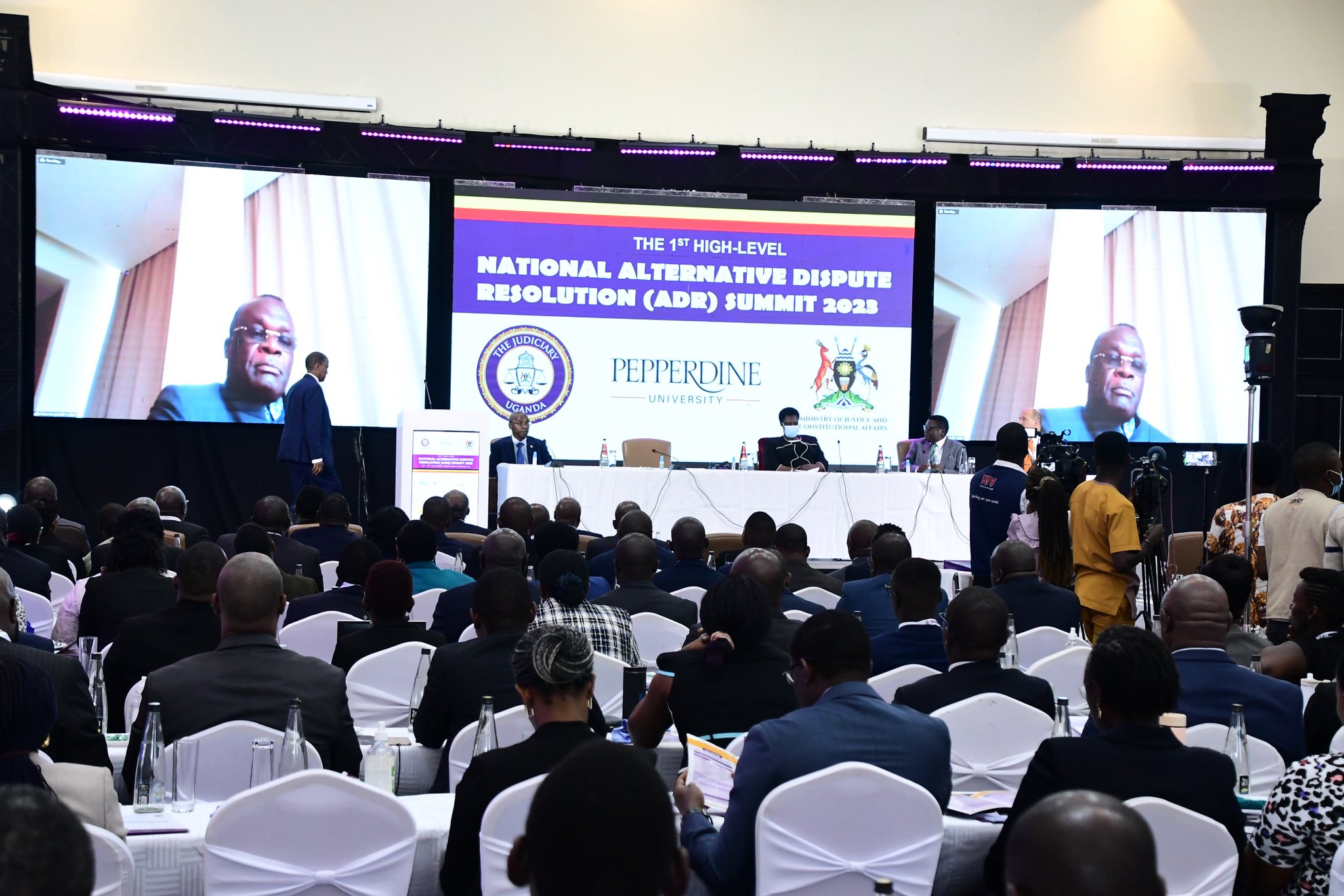Kampala,Uganda.
Uganda witnessed the convening of its first-ever National High-Level Summit on Alternative Dispute Resolution (ADR). This historic event, organized by the Uganda Judiciary in collaboration with the Ministry of Justice and Constitutional Affairs and Pepperdine University, aimed to revolutionize the administration and dispensation of justice in the country. The summit, held at Mestil Hotel & Residences, brought together prominent figures, including Chief Guest Vice President Jessica Alupo, Deputy Chief Justice Richard Buteera, Hon. Norbert Mao Minister of Justice and Constitutional Affairs, Hon. Lady Justice Monica Mugenyi Justice of the Court of Appeal, Hon. Justice Stephen Mubiru Head of Commercial Court, among others.
Alternative Dispute Resolution (ADR) refers to a range of techniques and processes aimed at resolving disputes outside the traditional court system. These methods include arbitration, conciliation, and mediation, which provide alternative avenues for parties to reach mutually acceptable agreements. By encouraging dialogue, collaboration, and creative problem-solving, ADR offers a more flexible and efficient approach to resolving conflicts.
The focal point of the summit was the pressing need to harness the potential of Alternative Dispute Resolution mechanisms in Uganda. A key highlight was the revelation by Justice and Constitutional Affairs Minister Norbert Mao that an astounding 8 trillion Ugandan shillings is entangled in commercial court disputes. This staggering amount reflects the urgent need for effective resolution strategies to unclog the system and unlock economic resources.
Honourable Nobert Mao emphasized that the adoption and widespread use of ADR methods have the potential to infuse vitality into Uganda’s economy. By alleviating the burden of case backlogs and facilitating swifter resolution, ADR offers a pathway for businesses to thrive and prosper. The Minister’s assertion underscored the imperative of embracing ADR as a catalyst for economic growth and development.
Honorable Justice Geoffrey Kiryabwire shed light on Uganda’s pioneering role in ADR, highlighting its distinction as the second African country to enact the Arbitration and Conciliation Act. Moreover, Uganda has extended support to neighboring nations, including Lesotho, Ghana, Rwanda, and Malawi, in their ADR endeavors. Justice Kiryabwire’s remarks showcased Uganda’s commitment to promoting and fostering ADR both domestically and internationally.
Chief Justice Alfonse Chigamoy Owiny Dollo who while transmitting via the Zoom app as he was unable to appear in person, emphasized the importance of ADR in transforming the justice system. Drawing on constitutional provisions and legal frameworks, such as Article 126 of the Constitution and the Judicature Act, the judiciary has laid a robust foundation for the integration of ADR practices. With the enactment of the Arbitration and Conciliation Act, ADR processes, including arbitration, conciliation, and mediation, have been seamlessly woven into the fabric of the court system. The ADR Summit provided a platform for stakeholders from various sectors to collectively work on proposals and strategies for strengthening alternative dispute resolution mechanisms. Deputy Chief Justice Richard Buteera highlighted the significance of collaboration between the judiciary, government, and business entities in implementing effective ADR measures. Recognizing that ADR is not solely the responsibility of courts and legal professionals, Mr. Wilbrod Owor, Executive Director of the Uganda Bankers Association, stressed the vital role of corporate players in supporting the cause.















